Business
Pacific Textiles chairman Masaru Okutomi appointed Director of Teejay Lanka
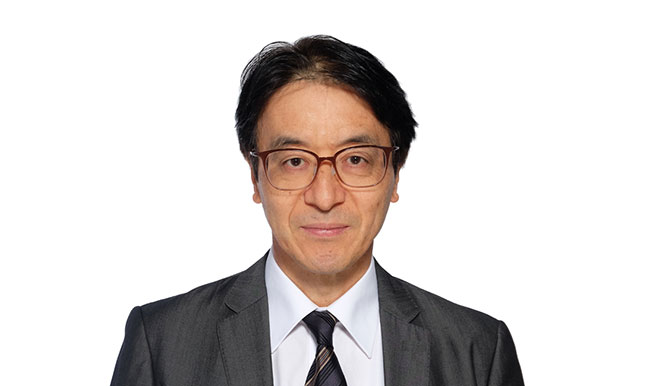
Teejay Lanka PLC has announced the appointment of Masaru Okutomi, the Chairman and CEO of Pacific Textile Holdings Limited of Hong Kong, as a non-executive Director of the Company with immediate effect.
Okutomi replaces Wan Wai Loi on the Board of Teejay Lanka PLC, consequent to a change in the latter’s role on the Board of Pacific Textiles, which has a 28 per cent stake in Teejay Lanka, the Company said.
Okutomi has a Bachelor’s degree in Law from Hitotsubashi University, one of Japan’s top universities, and held senior management positions including Managing Director of Toray Industries (South China) Co. Ltd. and of Toray Industries (Hong Kong) Ltd., Deputy Managing Director of Toray Industries (China) Co. Ltd. in the past.
He was re-designated from Vice-Chairman to Chairman and CEO of Pacific Textiles, a leading manufacturer of customised knitted fabric with an annual production capacity of approximately 87 million kg, on 1st October 2021, and leads the Group’s management team, overseeing overall production and operations, providing corporate direction and formulating business strategy.
Welcoming Okutomi to the Board of the Company, Teejay Lanka Chairman Bill Lam said his extensive experience in the management of a globally-significant textiles business would be an asset to Teejay’s own growth and expansion aspirations as it progresses towards its target of becoming a US$ 300 million business. “We also thank Wan Wai Loi, for his exemplary service as a Board member of Teejay Lanka PLC,” Lam said. “He has done yeoman service shaping the journey of Teejay Lanka for the past 11 years and his guidance and wealth of knowledge was greatly appreciated by all his peers on the Board.”
Sri Lanka’s largest textile manufacturer and the first textile manufacturer in the country to receive membership of the US Cotton Trust Protocol, Teejay Lanka PLC is a public quoted company with 39 per cent public ownership. The company is backed by Sri Lanka’s largest apparel exporter Brandix Lanka which has a 33 per cent stake. Pacific Textiles of Hong Kong whose key shareholder is the Tokyo Stock Exchange listed Toray Industries Inc., owns 28 per cent of Teejay Lanka.
The Company has been adjudged the Best Textile Exporter in Sri Lanka at the Presidential Export Awards presented by the Export Development Board (EDB) and has been named among the 100 Most Respected Companies in Sri Lanka by LMD.
An ISO 9001:2015, ISO 14001:2015 and OHSAS 18001:2007 compliant company and the first in the industry to develop green fabric, Teejay has been listed on the Colombo Stock Exchange (CSE) since 2011 and was included in the S&P Top 20 Index in Sri Lanka. The Company has also been named among the Forbes ‘200 Best under a Billion in Asia’ and been recognised as the ‘International Textile Firm of the Year’ and the ‘International Dyer and Finisher’ by World Textile Institute, London.
Business
Will the U.S. 44% Tariff on Sri Lankan Exports Harm Key Industries? Examining the Impact and Sri Lanka’s Path Forward – Ambassador Kananathan
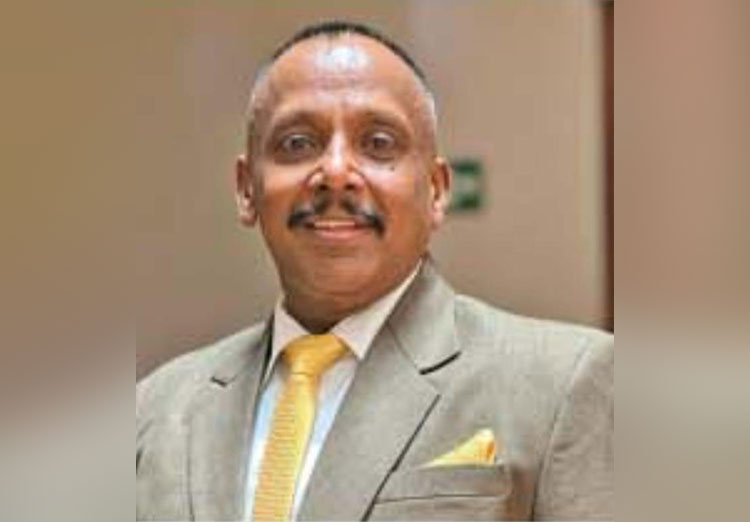
Sri Lanka’s export sector is grappling with a significant challenge following the United States’ decision to impose a 44% reciprocal tariff on Sri Lankan goods. This steep tariff threatens the country’s trade with the U.S., particularly in the apparel industry, which serves as a cornerstone of Sri Lanka’s economy.
Tea and Other Exports Also Under Threat
The repercussions extend beyond apparel, with tea exports at risk due to increased costs that may reduce Sri Lanka’s competitiveness against major producers like India, Kenya, and China. Other key export segments, including spices, seafood, and coconut-based products, are also likely to face price pressures, making it difficult for Sri Lankan exporters to sustain their foothold in the U.S. market.
Given that the United States is a major buyer of Sri Lankan goods, this move raises concerns about trade competitiveness, long-term sustainability, and economic stability. The question now is: how will this tariff impact Sri Lanka’s export-driven industries, particularly apparel, and what strategies can be employed to counteract the effects?
A Major Blow to the Apparel Sector – Sri Lanka’s Leading Foreign Exchange Earner
Ambassador Kana Kananathan, former High Commissioner to Kenya, has warned that this development could severely impact the apparel sector, which accounts for nearly 40% of Sri Lanka’s total exports. With U.S. buyers contributing approximately $3.3 billion annually, the apparel trade constitutes a crucial revenue stream for the nation.
A 44% tariff would substantially raise the cost of Sri Lankan apparel, making it less competitive compared to manufacturers in Bangladesh, Vietnam, Cambodia, and India. This could lead to a significant drop in orders from American buyers, posing a serious threat to the industry’s growth and employment rates.
Navigating the Challenge: Government and Industry Response
While immediate government intervention is necessary to mitigate these effects, businesses must also take proactive measures. Innovation, market diversification, and strengthening supply chain resilience will be essential strategies for overcoming these trade barriers. With the right approach, Sri Lanka can navigate this challenge and position itself more robustly in the global marketplace.
Ambassador Kananathan also suggested that exporters explore the ‘1/3 Cost-Sharing Model’ as a potential solution. Under this approach:
=Sri Lankan Manufacturers accept a partial reduction in profit margins, ensuring their products remain competitively priced.
=U.S. Retailers and Brands agree to absorb a portion of the tariff, recognizing the value of maintaining a reliable Sri Lankan supply chain.
=Raw Material Suppliers provide pricing flexibility, such as offering discounts or extending credit terms, to help offset cost increases.
By adopting these strategic adjustments, Sri Lanka’s export industry can mitigate the immediate impact of the tariff while laying the foundation for long-term trade resilience.
( Ambassador Kananathan was Sri Lanka”s former High Commissioner to Kenya and with concurrent accreditation to 23 African countries as well as Sri Lanka’s Permanent representative to UNEP and UN Habitat)
Business
Three Sinha Industries wins award for excellence at SLIA

Three Sinha Industries Pvt. Ltd. has been recognised with the Award of Excellence at the Sri Lanka Institute of Architects (SLIA) Annual Product Awards, held recently in Colombo. The award was presented for the company’s high-quality, fire-resistant doors, which are made using locally sourced materials and designed to meet the highest safety standards. The award ceremony was held recently in Colombo, and Managing Director Manjula Ariyakumara accepted the award on behalf of the company, marking yet another milestone in Three Sinha’s journey of excellence.
From its establishment as a small-scale business, Three Sinha has grown into a trusted name in Sri Lanka’s construction industry. The company has built a strong reputation for its commitment to quality, innovation, and reliability, earning both local and international recognition. Over the years, it has received several certifications for maintaining top-tier quality standards. Three Sinha has also received many other local and international awards.
Three Sinha Industries offers a diverse range of products and services, including roller doors, shutters, and fire-resistant doors that provide enhanced safety and durability. The company also specialises in aluminum fabrications, sensor doors, and automatic barriers, ensuring a comprehensive suite of solutions for the construction sector. Embracing sustainability, Three Sinha has expanded into green energy solutions, offering three types of solar PV electricity systems: on-grid, off-grid, and hybrid. Additionally, its subsidiary, IKLO Industries, focuses on pre-fabricated and pre-engineered steel buildings, incorporating advanced technology to meet modern construction demands. IKLO has also ventured into the agricultural sector by introducing tractor trailers tailored for farming needs. Moreover, the company manufactures high-quality diesel tanks that meet the standards of both the Ceylon Petroleum Corporation and the Indian Oil Corporation.
Business
Amana Life Insurance Delivers Exceptional Returns to Policyholders in 2024
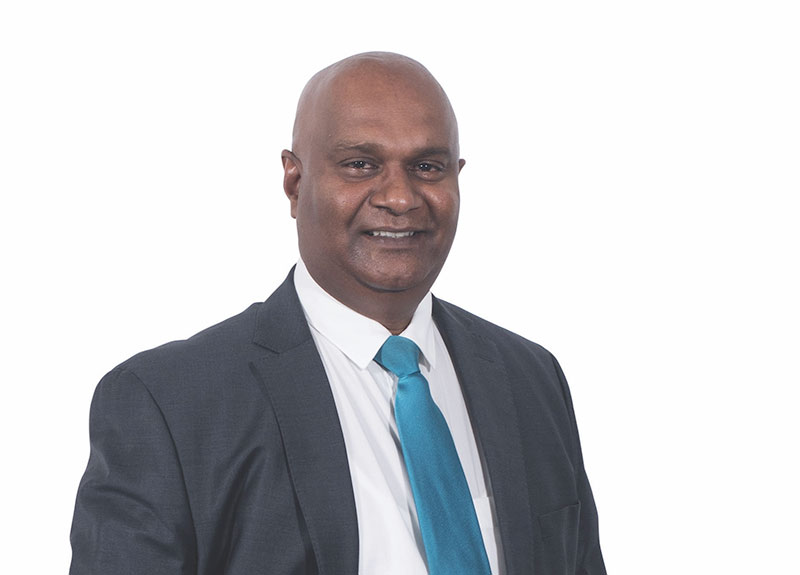
Amana Takaful Life Insurance PLC has once again demonstrated its commitment to delivering unparalleled financial security and growth, delivering attractive returns for long-term policyholders for 2024. As a trusted long-term insurer, Amana Life provides policyholders with the best investment choices, ensuring they can build and secure their financial future with confidence.
This achievement is driven by the company’s diverse, risk-rated investment options, strategically allocated across fixed deposits, bank investments, equity markets, and gold funds. This structure allows policyholders to balance security and growth, selecting funds that align with their financial goals while adapting to market conditions. As the only life insurer in Sri Lanka offering such flexibility, Amana Life empowers customers to optimize their investments while maintaining long-term financial stability.
The review of Funds as of December 31, 2024, demonstrates exceptional returns across all investment avenues, reaffirming Amana Life’s position as the insurer of choice for those seeking the best investment opportunities. The Protected Multiple Fund (PMF), with a Fixed Deposit base of 90% of its fund value, demonstrated steady returns, despite Sri Lanka experiencing interest rate cuts regularly over the past 24 months. PMF produced returns of 18.1% for the said period on an annualized basis while the market rates for Fixed Deposits reached single digits towards the latter part of 2024.
“At Amana Life, we are committed to providing our long-term policyholders with both protection and rewarding investment opportunities,” said Gehan Rajapakse, CEO of Amana Takaful Life PLC. “These results prove that we are not just offering life insurance, but also a well-structured pathway for long-term financial security and growth. However, it is important to note that past returns are not a guarantee of future performance, as market conditions can influence future results.”
-

 Business2 days ago
Business2 days agoStrengthening SDG integration into provincial planning and development process
-

 News6 days ago
News6 days agoBid to include genocide allegation against Sri Lanka in Canada’s school curriculum thwarted
-

 Business1 day ago
Business1 day agoNew SL Sovereign Bonds win foreign investor confidence
-

 Sports3 days ago
Sports3 days agoTo play or not to play is Richmond’s decision
-

 Business1 day ago
Business1 day agoDaraz Sri Lanka ushers in the New Year with 4.4 Avurudu Wasi Pro Max – Sri Lanka’s biggest online Avurudu sale
-

 Latest News5 days ago
Latest News5 days agoIPL 2025: Rookies Ashwani and Rickelton lead Mumbai Indians to first win
-
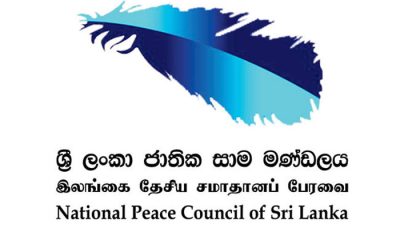
 News6 days ago
News6 days agoSL needs a comprehensive solution, not selective justice: NPC
-
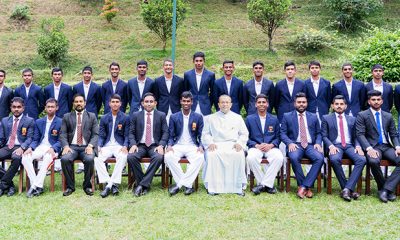
 Sports4 days ago
Sports4 days agoTrinity, St. Anthony’s out to end decade long victory drought











